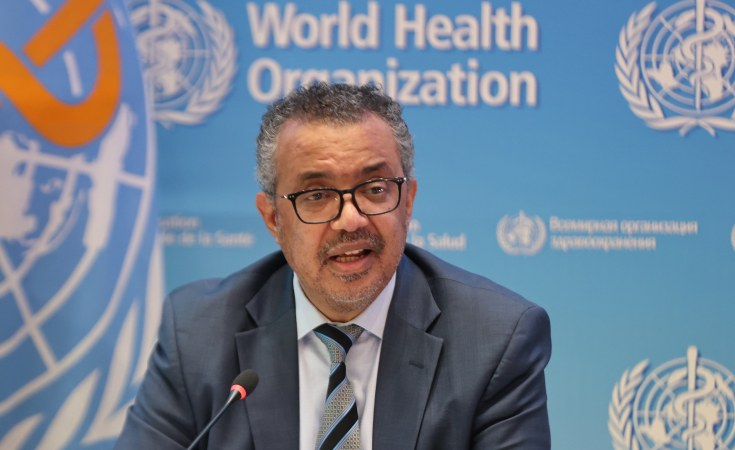WHO said Africa's HIV-positive population increased from 15.6 million in 2005 to 24.3 million in 2021, accounting for 3.4 per cent of the total population.
The World Health Organisation (WHO) says though the HIV epidemic in Africa isn't raging as fiercely as before, transmission is still prevalent.
According to the global body, the continent's HIV-positive population increased from 15.6 million in 2005 to 24.3 million in 2021, accounting for 3.4 per cent of the total population.
The WHO Regional Director for Africa, Matshidiso Moeti, disclosed this in his message on Sunday to commemorate the 2024 World Health Day, which is themed My Health, My Right.
Ms Moeti said the data reflects the continued transmission of HIV despite reductions in the incidents of people newly infected.
She said the development is not unconnected to the disparity in the coverage of key reproductive- maternal, newborn, and child, especially among the rural dwellers and those in hard-to-reach areas.
She said: "This reflects the continued transmission of HIV despite reductions in the incidence of people newly infected and the benefits of significantly expanded access to antiretrovirals.
"Disparities in the coverage of key reproductive, maternal, newborn, child, and adolescent health interventions remain significant, with the rural dwellers, the poor, and those in hard-to-reach areas being the most disadvantaged".
The regional director also disclosed that 8% of the continent's population is still experiencing catastrophic health expenditures.
Improvement in Africa's health
However, the statement noted that Africa has recorded some significant progress in its health sector, which is resulting in better health outcomes for the people.
According to Ms Moeti, the number of new HIV infections dropped by 44 per cent and AIDS-related deaths by 55 per cent between 2011 and 2021.
Also, women's life expectancy rose from 53 to 67 years between 2000 and 2020, while the maternal mortality ratio decreased by 33 per cent.
"With our member states, we have made significant progress in ensuring better health outcomes for our people over the past decade. More mothers and children are surviving today than before. From 2000 to 2020, the life expectancy of African women increased from 54 to 67 years; the maternal mortality ratio decreased by 33 per cent (from 788 to 531 maternal deaths per 100,000 lives), and the number of children dying before the age of 5 was reduced by 50 per cent from 2000 to 2017.
"Between 2011 and 2021, the number of new HIV infections and AIDS-related deaths decreased by 44 per cent and 55 per cent, respectively, across Africa, and the number of TB deaths decreased by 26 per cent", the statement further noted.
The health body's official also noted that diseases such as polio, guinea worm, as well as maternal and neonatal tetanus are currently on the verge of extinction.
She urged Africa to address the health inequities among its people, noting that health is not only a fundamental human right but also central to the peace and prosperity of the region.
World Health Day
World Health Day (WHD) is a global health awareness day celebrated on 7 April every year.
It was first introduced on 7 April 1950 and was held to mark the establishment of the World Health Organisation.
The organisation sees the celebration as an opportunity to drive worldwide attention to global health and healthcare improvement each year.
WHD is one of eight official global health annual campaigns marked by WHO, along with World Tuberculosis Day, World Immunisation Week, World Malaria Day, World No Tobacco Day, World AIDS Day, World Blood Donor Day, and World Hepatitis Day.


